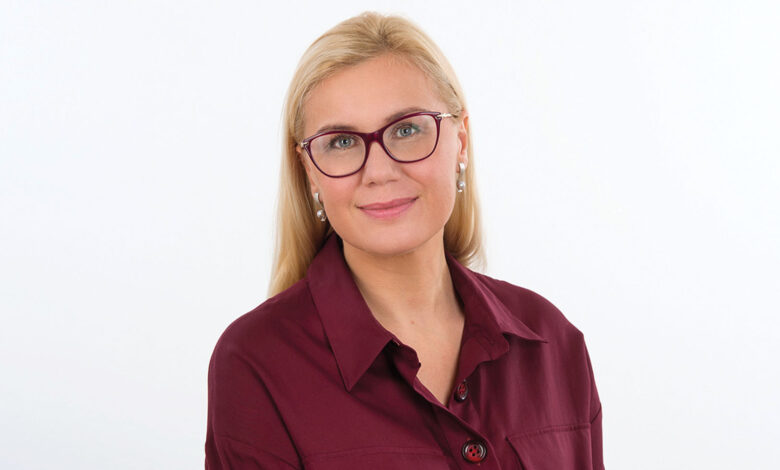Commissioner Kadri Simson’s vision for European energy

European Commissioner for Energy, Kadri Simson, tells eolas Magazine that the EU’s ambitions for sustainable energy are “where our future lies” and praises progress being made in Ireland in this regard.
“What is happening right now is a renewables revolution,” says Simson. “This decade, the installed capacity of renewable energy in the EU is set to triple and the past two years have set new records for wind and solar power deployment.”
In the electricity sector, the share of renewables throughout the EU has increased from a rate of 34 per cent in 2019 to 41 per cent in 2022 and Simson is optimistic that this will have further increased when figures for 2023 are released.
In 2024, the EU reached an important milestone as energy use from wind surpassed natural gas for the first time, growing by a record 5,500 hours from 2022 levels. Although cognisant of the progress being made, Simson warns against complacency.
“All these good results do not mean that our work is over; more efforts will be required to achieve the targets,” she states.
The EU has introduced a framework which aims to ensure faster and simpler permitting procedures, working in tandem with new rules to reform market design.
“This will help to further integrate renewables in the electricity system. What we need is a swift and ambitious implementation of the EU framework by member states,” she says.
Renewable energy in Ireland
Simson says that Ireland is “certainly playing its part in keeping up our ambition” in terms of the EU’s broad decarbonisation targets.
“You have set sectoral carbon budgets, you have upgraded your renewable electricity penetration from 30 to 70 per cent. Which is very ambitious in a tight timeframe.”
She adds: “Your plan for a cumulative target of 22GW of wind and solar PV capacity by 2030 will make Ireland a world leader in clean energy. Wind in particular, is one of Ireland’s strengths.
“Ireland already has a lot of vision for harnessing its wind potential. You have earmarked some of your wind for producing renewable hydrogen. You are also investing massively in offshore wind and putting effort into accelerating permitting processes. In this respect, let me commend Ireland for the first auction under the Offshore Renewable Energy Support Scheme.”
Asserting that the performance of the broad wind energy sector in Ireland has “surpassed expectations”, Simson states that the progress made in Ireland so far “marks a promising start for the sector”.
Simson, a former Estonian cabinet minister, states that across the EU, renewables have also made “huge strides in transport and heating”.
“In Ireland, what is really encouraging is that heat pumps are now the go to option for new builds. You are also looking more and more into district heating. This is an efficient way to deliver clean and affordable heat while reducing the load on the energy system.”
On her broad vision for the European energy system of the future, Simson says that “a successful energy transition depends on having strong resilient digital and cyber proof power infrastructure”. “Without an electricity network fit for purpose, we will not achieve our REPowerEU goals to replace Russian fossil fuels, nor reach our net zero targets.
“This decade, the installed capacity of renewable energy in the EU is set to triple and the past two years have set new records for wind and solar power deployment.”
Kadri Simson, Commissioner for Energy, European Commission
“We especially need interconnected electricity rates. This is important for our security of supply, for integrating more renewables into member states’ energy markets, and for electrifying the energy system.”
The Celtic Interconnector is expected to be completed by 2027, having been awarded the status of project of common interest, meaning it benefits from a number of incentives including substantially EU funding.
On the interconnector, Simson says: “It will link Ireland and France and benefit consumers in the two countries. It will also allow for more flexible exchange of power flows between mainland Europe and Ireland.”
Concluding, Simson says that the term of the 2019-2024 Commission has been “transformative for the EU energy system”.
“Four years ago at the start of this Commission’s mandate, we knew that huge change was on the horizon. We did not realise however, just how far we would go and how ambitious we would become.
“Russia’s invasion of Ukraine proved that we made the right strategic decision to go all in on the energy transition. This is where our long term and actual freedom lies. Now, we must stay the course. Let us continue working towards cleaner, greener, and more affordable energy for citizens in Ireland and all across Europe.”





